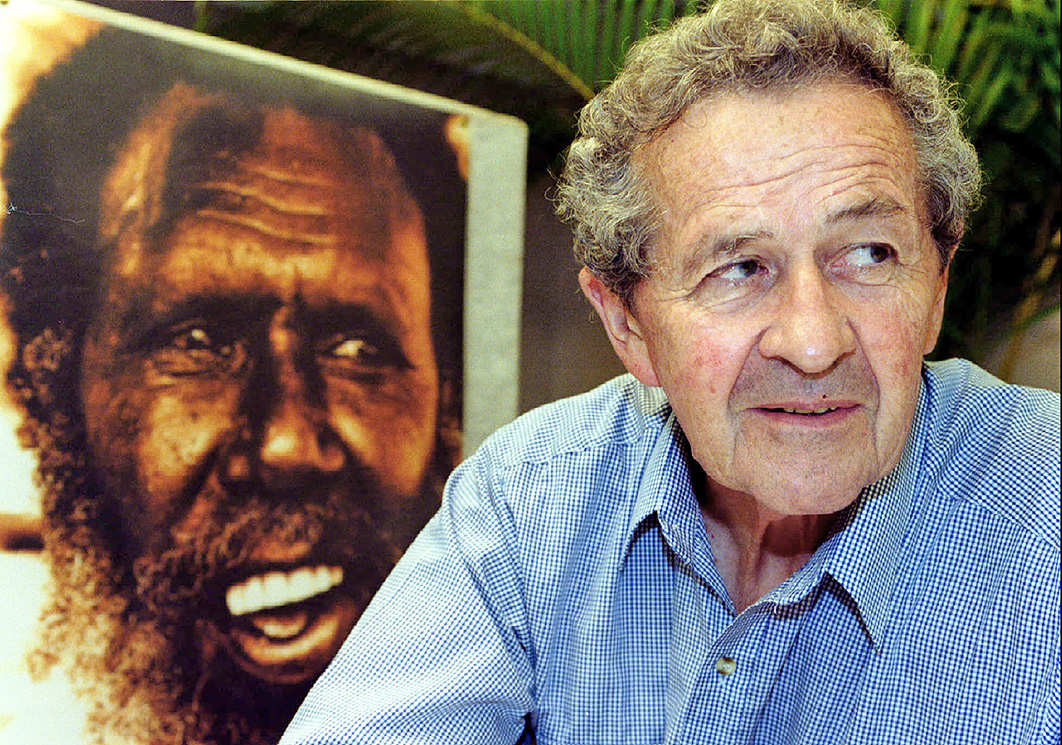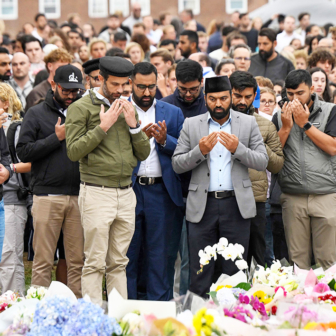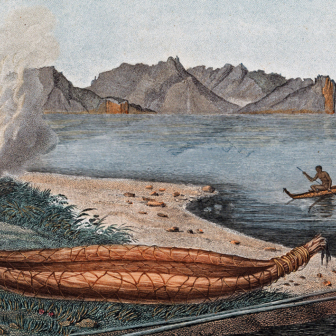A few weeks before he died I received a call from Hal Wootten’s wife, the anthropologist Gillian Cowlishaw, who was very concerned about him. It was after the lockdown had commenced and we knew that he mightn’t have long, so I went over to see him. He was sound asleep when I got there but Gillian thought I should see him nonetheless.
He woke up, a bit dazed and groggy and then smiled, said hello, looked at me quizzically and said, “And to what paragraph of the Public Health Order do I owe the pleasure of this visit?”
I didn’t want to plead civil disobedience and I didn’t have the heart to tell him it was a care visit for a dying friend. Sensing that I didn’t have an answer, he looked at me, and smiled, and said, “I suppose it could be a care visit for a dying friend.” I smiled back.
For around two decades, I would catch up with Hal regularly, often every month, and we would sit down over lunch and discuss the state of the world. We discussed the law and Indigenous policy, and what George Bush or Donald Trump were up to. And we — though more him than me — would reminisce. Sometimes he told stories that I had heard before but usually they were new. Each time they were wonderful and told with a generosity and humanity that said much about the teller.
But that afternoon a few weeks ago, with Hal well aware that death was finally coming, I had the unique privilege of telling his stories back to him, reminding him of why his life was one of great meaning, why he had lived out his motto — “to thine self be true” — and why, in his own humble way, he had had an immeasurable impact on this country.
For a man with such a keen sense of humour, and who led such a reflective life, irony sometimes escaped him. I remember having lunch with him when he was eighty-seven and living up at Hawkes Nest. He was complaining that he was feeling a bit sore. I raised a curious eyebrow, but privately thought it was just an old person complaining about his ailments. However, he went on to say that earlier in the week he had used a wheelbarrow to move ten tonnes of soil from the front of the house, where it had been delivered, to the back. I asked him why on earth he would do that. His response: “I want to build up the garden beds so that when I get old, I won’t have to bend over so far.”
There has always been a certain restlessness to Hal, one that would cause him to spend two months walking the untracked reaches of the Snowy Mountains as a student; or to leave a prestigious city law firm, Minters, to join the Australian School of Pacific Administration and then head to Manus Island in New Guinea to undertake fieldwork; or to leave a lucrative practice at the bar and sell up his fledgling cattle enterprise in order to establish a law school when his only experience of teaching law had been as a part-time tutor; or to leave Australia in his late eighties to spend three months living in Ramallah in order to get a deeper understanding of the Palestinian predicament. Hal certainly gave licence to his curiosity, and the more any learning experience involved an element of adventure, the keener he was.
He once told me how he would continually ask his colleagues at the School of Pacific Administration — poets, historians, anthropologists and experienced kiaps (New Guinea field officers), many of whom had spent years working in very challenging environments — “Why?”; “Why do you say that?”; “Why is that the case?” He genuinely wanted to know the answer, but they came to think of him as the true intellectual among them for doing no more than constantly asking “Why?” That was something that amused Hal, and he continued to make good use of the technique throughout his life, often to the discomfort of his hyperbolic friends.
People often speak of Hal as a figure on the left of politics. Certainly, in his early days as a lawyer he was briefly a member of the Communist Party. It didn’t trouble the senior partner who employed him as his personal brains trust. But then Hal would later be the industrial lawyer of choice for the Packers (that’s Frank and Kerry, not the storemen) and the pastoralists. He was also the unionists’ lawyer of choice on occasion.
Whether he was for capital or labour, he was respected by both and independent of either. He was not just open to the arguments but determined to test his own assumptions and preferences. His compassion was never in doubt, but his intellect was always his guide. No one owned Hal Wootten, but he was loyal to people and causes.
Despite John Kerr’s very public shortcomings, Hal remained loyal to him. Kerr had taken Hal up as a protégé and was one of Hal’s early mentors, although never in the league of Hal’s mother and grandparents. But Hal was also one of the first to privately signal his disapproval after Sir John’s dismissal of Gough Whitlam as prime minister in 1975. When Sir John rang him on the day it happened to seek affirmation of what he had done, Hal’s response — “I’m sure you must have had a very good reason” — delivered in his sceptical tone, would not have been the one Kerr was seeking.
Like all of us, Hal was not without his contradictions. He could show enormous patience and sympathy in some situations, especially in dealing with those who were struggling, and yet be short and even cantankerous in others.
One of the few times I encountered Hal in a professional capacity was in the early days of the Native Title Act, when he was conducting a mediation as deputy president of the National Native Title Tribunal. The parties were a group of native title claimants at Peak Hill, for whom I acted, a gold mining company wanting to mine the old town reserve, the local council, and the NSW government. Peak Hill is south of Dubbo and the history of the Aboriginal people there, like elsewhere, had been one of dispossession, discrimination, suffering and exclusion.
In listening to each party speak, Hal was unrushed and very attentive. Occasionally he would ask an open question for clarification, but there was no judgement in his manner. He was there to listen and learn. Importantly, no lawyer spoke. It was the people at the heart of the dispute talking directly to one another, airing, in the case of the claimants, grievances that were generations old. The mayor acknowledged the wrongs but spoke of what the mine would do for the town; the miner’s CEO, confronted with a situation that he hadn’t experienced before, promised that they would be respectful of the community’s concerns and interests.
It was a genuine and moving exchange — until the state government, through its barrister and senior lawyers, delivered its legalistic position, which gave no scope for compromise or agreement. In an instant, Hal, the gentle grandfather, transformed into the very grumpy, acutely attuned judge. But there are limits to what a mediator can achieve in the face of intransigence, and with the state unwilling to shift, Hal terminated the mediation. Unlike so many of his successors on the tribunal, who kept matters in fruitless suspension for years, Hal knew there was no value in flogging a dead horse.
Hal had a number of important personal friendships with people “on whom the law bears harshly.” Frank Doolan, a renowned senior Wiradjuri man who is known across the state as “Riverbank Frank,” would introduce Hal to friends as “Gill’s legal aid boyfriend.” Frank, who always had a very deep affection and respect for Hal, remembers him as “a kind, gentle man with enormous strength of character.” He goes on: “Although I often argued (or tried to argue) about Black issues with him I can’t recall a single time when I won the argument. Hal would sigh, look at me, with the patience of Job and say, ‘Frank you’ve got to have a plan.’ The Aboriginal Legal Service, which was born in Redfern, actually came into being because Hal and people like Neville Wran, Frank Walker and Paul Landa supported Indigenous Australians and saw their great need for proper representation in the legal world.”
For some years until he was well into his nineties, Hal and Gillian would join Frank in quiet protest at Villawood Detention Centre each Australia Day. Hal was concerned for the plight of refugees in Australia, especially those arriving by boat. One was Ali Gulzari, who became Hal’s friend when Ali’s remarkable success as a new arrival at high school in western Sydney led to them being put in touch. The friendship between these two flourished and they both learned much about the world from sharing stories with one another, sometimes on long exploratory drives across the country, including visits to Richard Frankland, a respected Aboriginal leader from Western Victoria who assisted Hal in the landmark work of the Royal Commission into Aboriginal Deaths in Custody.
Richard recalls that he first met Hal when he was about twenty-five. “We investigated First Nation deaths in custody together. It was a hard job, and we covered many miles together, over a period of about four years. As I watched Hal work, I was astounded at his ability to listen and actually hear what people had to say. We heard stories from many people who had lost a friend or family member in custody, stories about grief, injustice, systemic discrimination. Hal humanised what had been dehumanised. I once asked Hal what advice he would give a young man, meaning myself. He said, ‘Love with an open hand, have humility and give of yourself generously.’”
During the first decade of the twenty-first century, Hal was disturbed by events in the Middle East and the tensions between Islam and the West, so he decided to develop a deeper understanding of the roots of the conflict. In particular, he was concerned at the demonisation of Muslims. He returned to university, this time as an undergraduate student in Arabic studies. But this was not enough, and he decided to spend three months living in Ramallah, on the West Bank. It was a time in which he formed friendships on both sides of the border and made links that led to a program of Palestinian lawyers undertaking doctoral studies at UNSW. It also led to a close friendship with Naser Shaktour, the founder and director of the Palestinian Film Festival in Australia.
Hal was arrested among a group of Israelis defending Palestinian farmers from Israeli settlers in the West Bank. He insisted on the soldiers telling him under what law he was being detained. Eventually they released him without charge, but he refused to leave until all of the protesters were let go. After hours and hours of waiting around, the whole group was released.
Hal cherished his time as a barrister and a judge, but establishing the law school at UNSW was, for him, the highlight of his career and the source of his greatest professional pride. How a country trains its lawyers is no small thing. In setting out to change legal education, Hal was conscious of the impact that it could have on changing the country.
By the time I came to study law in the early 1980s, UNSW had already marked itself out as a progressive and highly innovative law school that broke with century old methods of how lawyers were to be trained. Importantly, the UNSW law school took seriously its obligation to engage students actively in their training, while inculcating a strong sense of professionalism and the responsibilities to society as a whole, especially “those on whom the law bore harshly,” who were the corollary of the privileges of practice. The pedagogy designed by Hal was based on the simple but effective principle of avoiding all that he had found miserable and useless in his own legal education. As time has gone on, elements of Hal’s approach have been adopted in every law school in the country, and overseas institutions, from Harvard down, have made efforts to explore UNSW’s approach.
No brief reflection like this can ever do justice to such a rich, purposeful and long life as Hal’s. Brought up by his widowed mother and her parents, he studied law part-time while working as a government clerk and went on to become a leading law student, adviser to the senior partner of a leading commercial firm as a graduate lawyer, New Guinea field worker, lecturer in law for colonial government administrators, leading industrial barrister, secretary-general of LAWASIA, foundation dean of a law school offering a new mode of legal education, founding chair of the first Aboriginal Legal Service, adviser to the government of the newly independent Papua New Guinea, Supreme Court judge, chairman of the NSW Law Reform Commission, chairman of the Australian Press Council, chancellor of NSW Institute of Technology (now the University of Technology Sydney), president of the Australian Conservation Foundation, royal commissioner into Aboriginal deaths in custody, deputy president of the National Native Title Tribunal, patron of the Environmental Defenders Office, Queen’s Counsel, Companion of the Order of Australia, farmer, activist, conservationist, humanitarian, friend of the downtrodden.
Hal was intellectually brilliant, warm, quick-witted, generous and humble. But of all his many wonderful qualities, three made him stand out.
The first was his vision of what could be achieved. He was so often the johnny-on-the-spot, trusting his instincts and judgement; he saw what others couldn’t but which in hindsight was so often blindingly obvious.
The second was his practicality. He didn’t hesitate in taking the first, often simple step and seeing where it would lead. He was courageous and tenacious in doing what needed doing.
And lastly, he was principled. One friend has said that he held a mirror up to the country, which he did, but not before he held it up to himself. •
This article is based on Andrew Chalk’s reflections at Hal Wootten’s funeral in Sydney on 6 August.




